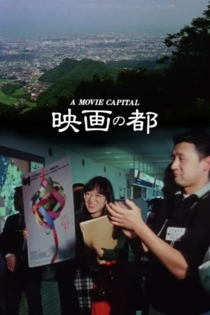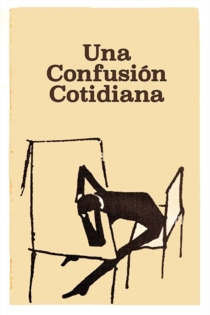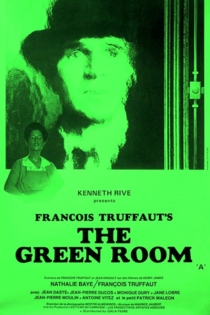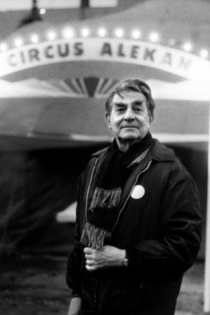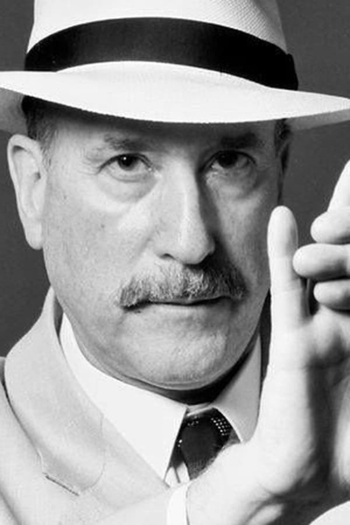
Néstor Almendros
1930 - 1992Néstor Almendros Cuyás was born in Barcelona, Spain, but at 18 moved to Cuba to join his exiled anti-Francisco Franco father. In Havana, he wrote film reviews. Then he went on to study in Rome at the Centro Sperimentale di Cinematografia. He directed six shorts in Cuba and two in New York City.
After the 1959 Cuban Revolution, he returned and made several documentaries for the Castro regime. But after two of his shorts (Gente en la playa and La tumba francesa) were banned, he moved to Paris. Starting in 1964, he became the favorite collaborator of French New Wave director Éric Rohmer. In the early seventies he also started working with François Truffaut, Barbet Schroeder and other directors.
Almendros began his Hollywood career with Days of Heaven (1978), written and directed by Terrence Malick, who admired Almendros' work on The Wild Child (1970). Almendros was impressed by Malick's knowledge of photography and his willingness to use little studio lighting. The film's cinematography was modeled after silent films, which often used natural light. In 1979, Almendros won the Academy Award for Best Cinematography for Days of Heaven.
Almendros received Academy Award nominations for his work on Kramer vs. Kramer (1979), The Blue Lagoon (1980) and Sophie's Choice (1982).
Almendros was the cinematographer for the John Lennon documentary, Imagine: John Lennon (1988), directed by Andrew Solt.
In his later years, Almendros co-directed two documentaries about the human rights situation in Cuba: Mauvaise Conduite (1984) (Improper Conduct) about the persecution of gay people in Cuba; and Nadie escuchaba (Nobody Was Listening), about the alleged arrest, imprisonment and torture of former comrades of Fidel Castro. He also shot several prestigious advertisements for Giorgio Armani (directed by Martin Scorsese), Calvin Klein (directed by Richard Avedon) and Freixenet.
Human Rights Watch International has named an award after him by establishing the Nestor Almendros Award for Courage in Filmmaking and it is given every year at the Human Rights Watch International Film Festival.
In 1980, Almendros won the César Award for François Truffaut's The Last Metro.
In 1992, Néstor Almendros died of AIDS-related lymphoma in New York City at the age of 61.
Source: Article "Néstor Almendros" from Wikipedia in english, licensed under CC-BY-SA 3.0.
Nadie escuchaba
Jorge Ulla, Néstor Almendros
A documentary about the Cuban Revolution's transition into an authoritarian dictatorship, including repression, imprisonment, torture, and execution of political dissidents, while the rest of the world turned a blind eye.
Nobody Listened

Mauvaise Conduite
Orlando Jiménez Leal, Néstor Almendros
Michel Dumoulin, Reynaldo Arenas
The story of the persecution of homosexuals and intellectuals in Cuba under Fidel Castro's dictatorship, from the beginning of the Cuban Revolution (1953-59) until the early 1980s. Interviews with relevant personalities of Cuban culture who suffered persecution demonstrate that concentration camps for gays existed in Cuba.
Improper Conduct
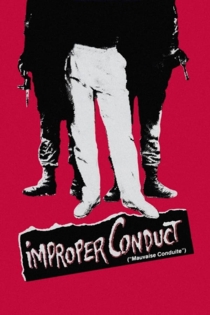
Visions of Light
Stuart Samuels, Arnold Glassman
Vilmos Zsigmond, Sven Nykvist
Cameramen and women discuss the craft and art of cinematography and of the "DP" (the director of photography), illustrating their points with clips from 100 films, from Birth of a Nation to Do the Right Thing. Themes: the DP tells people where to look; changes in movies (the arrival of sound, color, and wide screens) required creative responses from DPs; and, these artisans constantly invent new equipment and try new things, with wonderful results. The narration takes us through the identifiable studio styles of the 30s, the emergence of noir, the New York look, and the impact of Europeans. Citizen Kane, The Conformist, and Gordon Willis get special attention.
Visions of Light
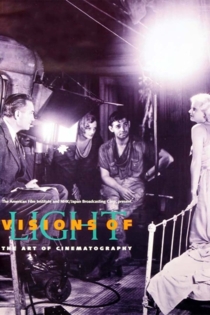
La Collectionneuse
Éric Rohmer
Patrick Bauchau, Haydée Politoff
A bombastic, womanizing art dealer and his painter friend go to a seventeenth-century villa on the Riviera for a relaxing summer getaway. But their idyll is disturbed by the presence of the bohemian Haydée, accused of being a “collector” of men.
La Collectionneuse
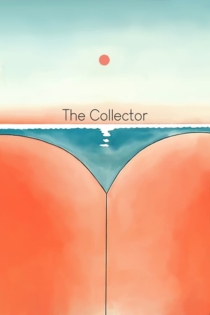
Working with François Truffaut: Nestor Almendros, Director of Photography
Néstor Almendros, Georges Sturm
An interview with cinematographer Nestor Almendros about his work with French film director François Truffaut. Footage taken from the 1986 German documentary Arbeiten mit François Truffaut
Working with François Truffaut: Nestor Almendros, Director of Photography
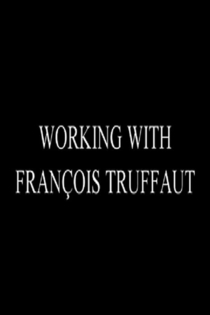
Gente en la playa
Néstor Almendros
"...it had no plot. The film was more a study of people's behavior, shot in 16mm with a hand-held camera, which was hidden most of the time. In its execution it was like my New York film 58-59, except that it was filmed in sunlight almost the whole time, on a public beach, and in the cafes nearby. There was no spoken commentary, only the actual sounds and typical Cuban jukebox music." - Nestor Almendros, A Man With a Camera
Gente en la playa

映画の都
Iizuka Toshio
Shinsuke Ogawa, Kong Su-chang
This film is a record of the first Yamagata International Documentary Film Festival. It reflects the various ways the festival was given shape by nascent global changes embodied by Perestroika, the Tiananmen Square massacre, and many other contemporaneous events.
A Movie Capital
